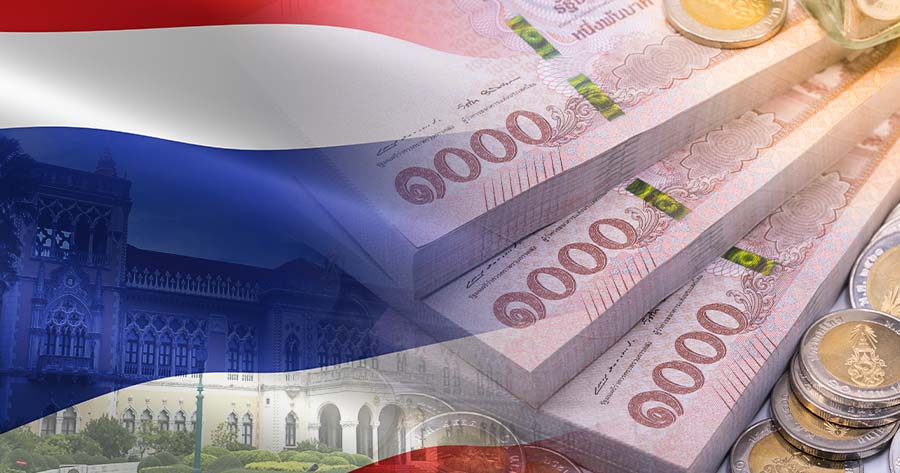On November 5, Thailand Ministry of Commerce announced that the nation’s Consumer Price Index (CPI) for October 2025 stood at 100.00, resulting in a general inflation rate decrease of 0.76% year-on-year compared to 100.77 in the same period last year. This marks a continued decline from the previous month.
Key contributing factors include the government’s cost-of-living relief measures under the Quick Big Win program and falling global energy prices, which significantly reduced energy group prices, particularly for electricity and fuel.
Additionally, prices for several essential goods fell—such as pork, eggs, fresh vegetables, and fruits—driven by increased supply, as well as personal items owing to promotional campaigns by retailers. The impact of other goods and services on inflation was limited.
International comparisons showed Thailand’s general inflation rate for September 2025 had declined by 0.72% year-on-year, ranking 6th out of 140 announced economies and the lowest among 10 ASEAN countries: Brunei, Singapore, Timor-Leste, Malaysia, the Philippines, Cambodia, Indonesia, Vietnam, and Laos.
By product category, non-food and beverage items decreased by 1.10% year-on-year due to lower energy prices from drops in electricity, gasohol, diesel, gasoline, as well as lower prices for personal items, vehicles, clothing, and cleaning products. Some categories increased, including house rent, outbound travel, waste collection, barber services, and pet food.
The food and non-alcoholic beverages category fell by 0.17% as prices for fresh vegetables, fruit, eggs, pork, fresh chicken, and sticky rice declined with higher agricultural output. However, certain products rose in price, such as ready-to-eat foods, milled rice, fish, coffee, vegetable oil, and sugar products.
Core inflation (Core CPI), excluding fresh food and energy, expanded by 0.61% year-on-year, slowing slightly from September’s 0.65%. The general CPI dropped by 0.11% month-on-month, following a 0.14% decrease in non-food and beverage items due to falling global fuel prices and state measures to cut living costs, such as toll fee exemptions on public holidays.
Some personal care items, like deodorant, facial foam, sanitary pads, and selected clothing, also fell in price due to promotions. Contrarily, some items—such as waste collection services, household cleaning liquids, and tissue paper—increased due to higher costs.
The average CPI for the first ten months of 2025 (January–October) contracted by 0.09% year-on-year. The Ministry of Commerce expects the general inflation rate to continue declining in November, supported by lower Dubai crude oil prices due to OPEC+ output increases and a reduction in oil fund contributions, bringing diesel retail prices down to 30.94 baht per liter. Electricity costs also fell, with Ft charges for Sep–Dec 2025 reduced to THB 0.1572 per unit, lowering the average power rate to THB 3.94 per unit.
Prices of vegetables and fruits also remain below last year’s levels due to a surge in market supply. Meanwhile, tourism operators are likely to lower room rates following domestic tourism stimulus measures, especially the tax deduction for domestic travel expenses up to THB 20,000.
Nonetheless, upward inflationary pressure may arise from a recovery in tourism, which could hike airfares, along with rising prices of certain agricultural and seasoning products compared to last year (such as ready-to-use coconut milk, instant coffee, salt, and vegetable oil) due to higher raw material and production costs.
The Commerce Ministry maintains its projection for Thailand’s 2025 headline inflation at 0.0%, reflecting overall stable and low price levels compared to regional trading partners.





